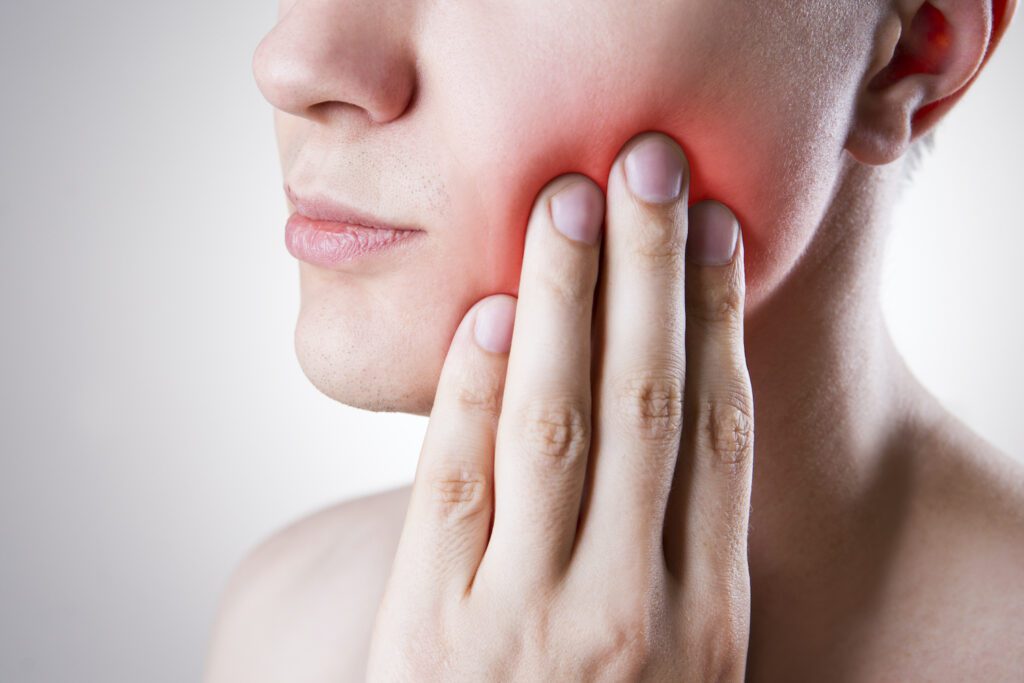The temporomandibular joint (TMJ) is a crucial part of your jaw that helps you talk, chew, and perform other daily functions. Excess pressure on your jaw can lead to TMJ disorder, a common dental problem for many patients. Dr. Paul Karpovich can help reduce the symptoms of TMJ disorder and help alleviate pain and discomfort. Treatment will work differently for each patient, but your dentist can examine your mouth and determine which treatment plan is best for your bite.


Symptoms of TMJ Disorder
TMJ disorder can manifest in a variety of symptoms. Because everyone is different, you may not experience all of the symptoms of TMJ disorder. Common TMJ disorder symptoms include:
- Teeth clenching and grinding
- Chronic headaches
- Lockjaw
- Tooth wear, pain, and sensitivity
- Jaw pain
- Muscle soreness in the face and neck
If you experience any of these symptoms, you should schedule an appointment with your dentist to see if TMJ disorder could be the culprit. Some of these symptoms also overlap with other dental concerns. Your dentist can examine your mouth and determine the cause of pain and discomfort.
How TMJ Treatment in Timonium, MD Works
Treating TMJ disorder can look different for each patient. There are many different options available that you and your dentist can work together to accomplish.
At-Home Treatment
For patients who suffer from mild cases of TMJ disorder, there are some at-home remedies you can try to help reduce symptoms. Performing certain jaw exercises, sleeping on your side, and using a heat pack to relax the jaw muscles can help alleviate pain and discomfort caused by TMJ disorder. If your symptoms continue or worsen, contact your dentist for further treatment options.
Orthodontic Intervention
Misalignment can cause uneven pressure in your bite, potentially leading to TMJ disorder symptoms. Seeking orthodontic treatment through Invisalign with your dentist may be able to help. By bringing your teeth into proper alignment, you can improve the strength of your bite and help reduce TMJ symptoms.
Custom Nightguard
Teeth clenching and grinding at night is a leading cause of TMJ disorder in many patients. A custom nightguard may be able to help. A nightguard helps protect your teeth and jaw by keeping your bite open and relaxed while you sleep. Not only can this help alleviate TMJ symptoms, but it can also prevent tooth enamel loss caused by frequent teeth grinding.
Restorative Dentistry
Damaged or missing teeth can also lead to uneven pressure in your bite, much like misalignment. After an examination of your teeth, your dentist may recommend restorative treatment such as a crown or implant. This treatment can help strengthen your bite and alleviate TMJ disorder symptoms.
Jaw pain is a common problem among many patients. Dr. Paul Karpovich can examine your bite to determine the most likely cause of your TMJ symptoms and propose a treatment plan designed to help. Call our office today at (410) 221-3085 to schedule a consultation about your case.
